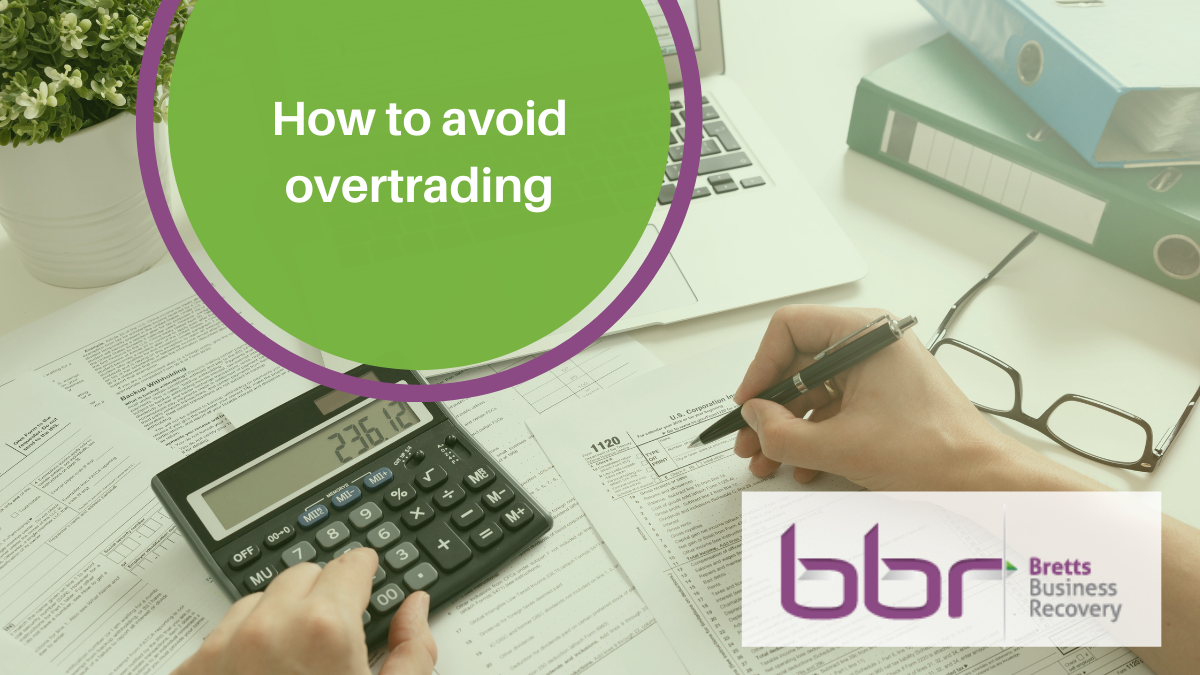Companies warned not to overtrade as lockdown lifts

As lockdown restrictions continue to ease and businesses begin to trade again there are reasons to be optimistic. Consumer spending is rising as there is more confidence in our economic future. But companies need to be aware of the risks of overtrading – doing too much too soon to make up for lost time -as this can potentially put them at risk of overtrading.
What is overtrading?
Overtrading happens when a business expands too quickly without having the financial resources to support such rapid expansion. Overtrading is responsible for a large number of company insolvencies in the UK, a notable example being Britain’s second-largest housebuilder, Carillion. The collapse of Carillion has been attributed to, amongst other reasons, taking on too many projects. Overreach at Carillion, as well as spiralling levels of borrowing and an unrealistic financial forecast were instrumental in the company’s demise.
What are the warning signs?
You need to be aware of the particular signs of overtrading to make sure you don’t fall into the same trap as Carillion:
Lack of cash flow
If your company repeatedly has to use an overdraft facility and/or borrow cash regularly this could be an early warning sign. Not all businesses can currently operate at full capacity or at the very least may need to invest in COVID secure measures to be able to operate compliantly. Without the cash reserves to cover these, you could compromise your company’s financial health. You may also struggle to obtain business credit in a post COVID landscape, so you need to factor in alternative methods of finance.
Reduced profit margins
You may need to reduce the cost of your products in the short term, especially if you have seasonal stock sitting in warehouses which needs to be sold quickly. As you reduce your profit margins, you are making it more difficult to sustain your business – especially in a rapidly changing marketplace. In the long term, you may even harm your company’s reputation, as a lower pricing expectation is set and is hard to then increase.
Excessive borrowing
Excessive borrowing will alert your lenders to the fact that you are experiencing financial difficulties. Borrowing money to pay invoices and suppliers each month is not sustainable in the long term. Banks or suppliers may even ask for a personal guarantee from company directors, essentially increasing your level of personal risk.
Loss of supplier support
With a certain degree of uncertainty in the marketplace post COVID, suppliers may well be wary of supplying to you in large quantities. If you begin to fall behind on payments, they may reduce your stock –essentially, your company will lack working capital and the supplies to carry on.
How to avoid overtrading
Insolvency occurs when there are insufficient resources to pay debts as they fall due, and the number of liabilities exceeds the assets. There are a number of factors to look at if you fear you are in danger of overtrading:
Cash flow management
Cash flow is critical to maintaining a healthy business. You must also ensure that you prepare regular and realistic business forecasts, taking into account historical and competitor records. For a more detailed advice on how to manage your cash flow, see here.
Reduce costs
Try to find ways to reduce costs that will not affect your ability to deliver your services / contracts. Leasing the required company assets for example, may free up some available cash flow as you are not buying them outright. You could also consider whether buying second hand equipment at a reduced price would also help.
New payment terms
You could negotiate new payment terms with your suppliers and creditors, in an attempt to provide your company with breathing space. However, if you habitually offer late payments – you must be aware that your creditors could issue proceedings to try and recoup their losses.
If you are concerned about overtrading, or your business is already showing signs of post lockdown pressure, do get in touch. We offer a free initial consultation for your business.